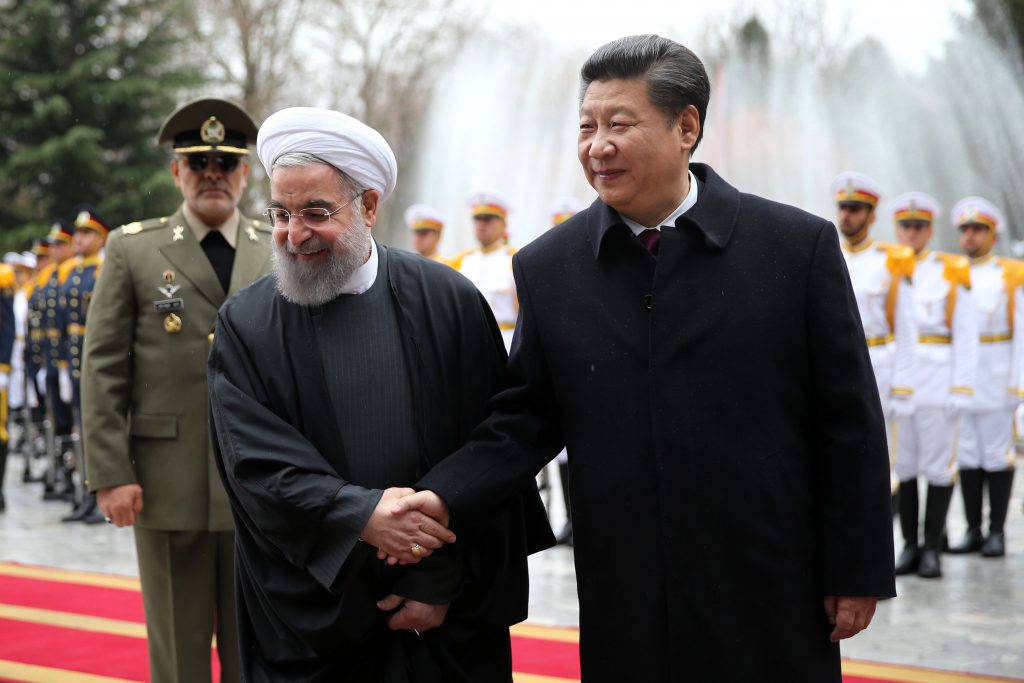
The article that Estadão published on the day 28/03 - “China will invest US $ in Iran 400 bi in exchange for oil ”- raises another important theme in the dispute between Chinese and Americans for world hegemony. This time the Middle East is the focus, particularly sensitive region of the planet, as we know.
According to the article, the agreement that was signed by the Chinese Chancellor, Wang Yi, and its Iranian counterpart, Javad zarif, during Wang’s recent visit to Tehran, provides for Chinese investments in “a dozen sectors, including banks, telecommunications, ports, railways, health and information technology… China has agreed to invest US $ 400 billion (R$ 2,3 trillions) in Iran during 25 years in exchange for a steady supply of low-cost oil to fuel its economy, in a broad economic and security agreement ”, affirms the columnist.
To materialize, this initiative may have profound implications both geoeconomically and geopolitically. In view of the complexity of what is at stake, let's try to understand the economic issues first.
How do you know, the accelerated growth of the Chinese economy has made it hostage to the import of commodities. In this context, the PRC has become the main consumer of primary energy on the planet. And for your energy security, it mainly depends on Persian Gulf exports. As the world's largest oil importer, it is essential for it to preserve a sufficient level of reserves in order to supply eventual shocks, as in the case of a war in the Middle East, example nothing impossible… For this purpose, the “International Energy Agency” / IEA, of which the People's Republic is not a part, by the way, recommends that countries maintain sufficient crude oil reserves to cover at least 90 days of net imports.
The increase in Chinese dependence on Persian Gulf oil has given rise to, In contrast, reciprocal dependence on its Arab partners – between them, Will, Iraq, Saudi Arabia and Oman -, that have it as the main foreign market for the product. It was established, like this, a symbiotic relationship that has been, in its turn, cause for growing concern for the US: for example, while on 2004 the Bush administration actively discouraged, for political reasons, oil companies to invest in iran, Chinese state-owned company Sinopec did not heed the call.
Beijing's “onslaught” has, by the way, comprehensive mapping: Chancellor Wang has already visited Saudi Arabia, Turkey and must go, soon, to the United Arab Emirates, Bahrain and Oman, according to the matter. Experts say that, because of this, the PRC is modulating its position from defensive diplomacy to a more global and efficient foreign policy, with an emphasis on energy security and the supply of raw materials. For the Visiting Professor at the University of Oxford, Galip Dalay, “Several factors today make Chinese partners attractive to governments in the Middle East. To begin, China has a dynamic and fast growing economy, suitable for these leaders who are highly suspicious of popular uprisings and democratization ”. The focus would be, therefore, economic connectivity, the safe flow of energy resources and the protection of regional investments. “China wants to export goods and commodities, not political ideas, to the Middle East ”, he states.
And it is in this context that the Iran / USA / West nuclear dispute is inserted…
Remember that it was signed in 2015, during the Barack Obama administration, by Iran and several world powers - including China -, the “Joint Comprehensive Plan of Action” / “Joint Comprehensive Plan of Action” (JCPOA), that set significant restrictions on the Iranian nuclear program in exchange for easing the economic sanctions that had been imposed on the country. However, in the presidency of the United States, D.T. withdrew, in 2018, your country of agreement, claiming that Iran was not fulfilling the commitment, spreading its zone of regional influence and threatening the neighborhood. When he succeeded him as head of the White House, Joe Biden expressed his desire to resume talks with the ayatollahs. It has transpired in the press that the US plans to present a new proposal to resume negotiations, but it is not certain that Iran will accept the terms.
That is, the question that doesn’t want to remain silent is whether the US / PRC / Iran question has to do with a Chinese strategy to expand its economic-commercial presence in the Middle East, only, or there would be a greater ambition from Beijing to consolidate a greater presence in a region (still) fundamental to the planet, stirring, once again, the competition with the shift hegemon?
I think that in order to try to unravel the current “mindset” of Americans it would be interesting to reflect a little on what is happening with the USA in these early times of Joe Biden. At my point of view, the PRC vs. USA dispute is shifting, more or less, of the “trade war” focus, towards D.T.. and republicans, for human rights, of Biden and the Democrats. It is enough to see that the accusations, currently, of Americans against Chinese are: Hong Kong, the Uighurs, Taiwan, the South China Sea…Questions, ultimately, "Westfalianas".
And what would be the “mindset” of the Chinese of Xi Jinping? The "New Silk Road" / "Belt and Road Initiative", that aims to unite Asia, Europe and Africa in a conurbation of three continents –– “post-Westfalian” issues, no sense lato – under the sponsorship of Beijing?
Big dog fight… “To be continued”.
I suggest to friends to read the Estadão article below:
China to invest in Iran US $ 400 bi in exchange for oil – International – Estadão
